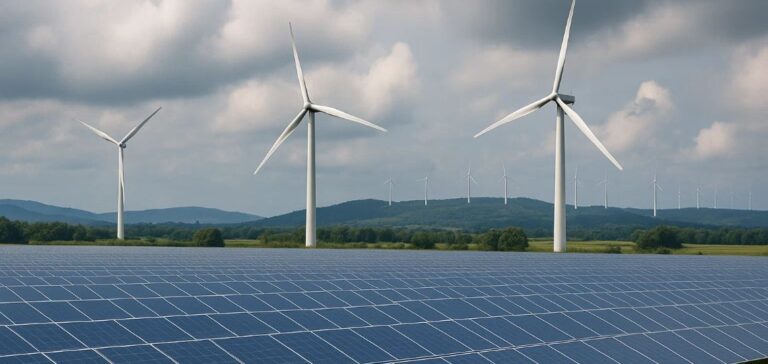The global renewable energy market is expected to reach $1,200 billion (approximately EUR1,080mn) in 2024, a significant increase from the previous year, according to the International Energy Agency (IEA). This growth is primarily driven by increased investments in solar and wind energy, which now dominate the sector. Governments worldwide, as part of their efforts to reduce greenhouse gas emissions, have reinforced support policies for these technologies.
Solar energy has played a central role in this expansion, accounting for approximately 50% of new investments in the renewable energy sector in 2024. The increase in production capacity, combined with the decline in solar panel costs, has strengthened its position as the leading renewable energy source. Offshore and onshore wind also experienced rapid growth, supported by large-scale projects in Europe and Asia.
Public and private investment sees sharp increase
Investments in renewable energy have been fuelled by a mix of public and private financing. Many European countries have implemented subsidy schemes and tax incentives to encourage companies to invest in these technologies. At the same time, private investors have shown increasing interest in renewable energy projects, attracted by long-term returns and the opportunities offered by the energy transition.
Funds dedicated to renewable energy reached record levels in 2024. For example, investments in solar and wind infrastructure in the Asia-Pacific region rose by 30% compared to 2023. This dynamic is driven by strategies to diversify investment portfolios and increased awareness of the risks associated with fossil fuels.
Impact of global energy policies
Global public policies have played a decisive role in this development. The European Union has recently introduced new regulations to promote the integration of renewable energy into power grids. China, the world’s leading solar producer, announced new initiatives aimed at doubling its wind capacity by 2030, thereby strengthening its position as the top investor in renewable energy.
The role of private companies, particularly in the technology sector, has also been crucial. Technology giants such as Apple and Google have invested heavily in renewable energy projects to power their data centres and operations, contributing to the reduction of their carbon footprint.






















